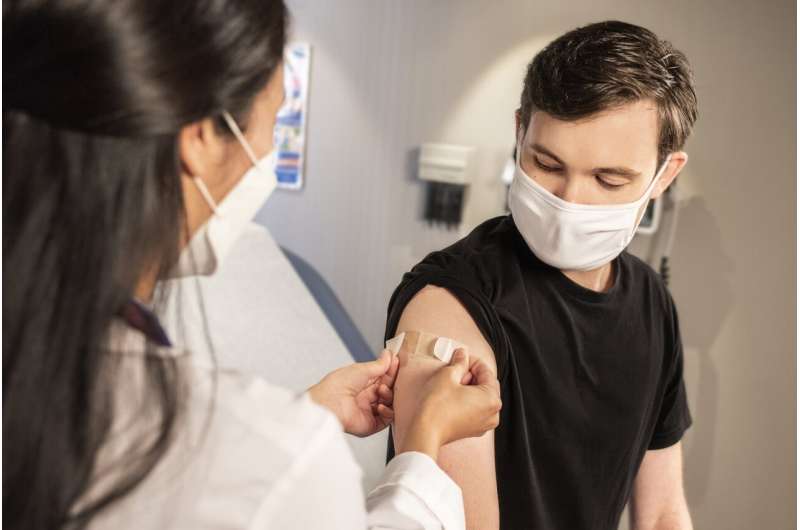
DEAR MAYO CLINIC: I have been hearing about an increase in the number of young people who are developing heart issues, including myocarditis, after being vaccinated for COVID-19. Can you explain this condition? I have a 15-year-old son, and I am wondering if it is safe for him to be vaccinated for COVID-19 or if he is at risk for developing a heart condition.
ANSWER: After more than a year of enduring the deadly global COVID-19 pandemic, a lot of confusing information is still out there about the virus and associated vaccines. These vaccines are now approved for people 12 and older.
Recently, news reports have been published about young people developing myocarditis after receiving a second dose of a messenger RNA COVID-19 vaccine, like Moderna or Pfizer.
Myocarditis, which is an inflammation of the heart muscle, usually occurs after a viral infection. And, although rare, myocarditis also can result from a reaction to a vaccination or new drug exposure.
Myocarditis can affect your heart muscle and your heart’s electrical system, reducing your heart’s ability to pump, and causing rapid or abnormal heart rhythms, or arrhythmias. In many cases, myocarditis improves on its own or with treatment, leading to a complete recovery. In severe cases, it can permanently damage your heart muscle. In COVID-19 infections, myocarditis is uncommon.
People who develop myocarditis may have no symptoms. In symptomatic patients, chest pain, shortness of breath and arrhythmias are most common. Symptoms usually occur one to five days after infection or exposure to COVID-19. Most patients who developed myocarditis recover quickly.
COVID-19 doesn’t usually affect the heart, but myocarditis has been reported as a long-term complication following COVID-19 infection in limited cases. More research is needed in this area.
The number of people who develop myocarditis as a result of messenger RNA vaccines has been estimated to range from 1 in 20,000 to 1 in 100,000 doses, depending on the age and gender of the vaccine recipient.
Most of the published data regarding myocarditis risk after vaccination are for adults. Of late, myocarditis has been reported primarily in young men and primarily after receiving the second dose of a messenger RNA COVID-19 vaccine.
To put this risk in perspective, the rate of both symptomatic and asymptomatic myocarditis in collegiate athletes is approximately 2.6%, which is much higher than the risk following vaccination for COVID-19. These numbers are gleaned based on confirmatory imaging.
The importance of being vaccinated for COVID-19 cannot be overemphasized. For those who have been vaccinated for COVID-19, life is beginning to return to a bit of pre-pandemic normalcy. The guidance from the Centers for Disease Control and Prevention regarding safe activity recommendations for fully vaccinated people is extensive.
Fully vaccinated people can:
– Visit with other fully vaccinated people indoors without wearing masks or staying 6 feet apart.
– Refrain from quarantine and testing if no symptoms of COVID-19 are experienced after contact with someone who is infected with COVID-19.
– Resume travel with updated testing and quarantine guidelines.
For people who have not been vaccinated for COVID-19, risks are greater. Even as hospitalizations and deaths in the U.S. continue to decline, new COVID-19 variants and cases are increasing in younger populations.
Therefore, based on current knowledge, I recommend that your son be vaccinated for COVID-19. Long term, the risk of myocarditis is much lower with being vaccinated for COVID-19 than with being infected with COVID-19.
Studies are ongoing to determine the risk with other vaccines and the risk of myocarditis in younger children.
Source: Read Full Article
